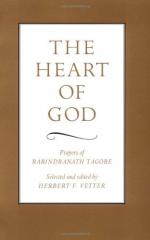|
This section contains 1,162 words (approx. 4 pages at 300 words per page) |

|
TAGORE, RABINDRANATH (1861–1941), poet, novelist, playwright, composer, and spiritual leader, is best known as the winner of the 1913 Nobel Prize for Literature and one of India's greatest modern poets. Yet he was also a complex figure who embodied many of the deepest religious and political tensions of late colonial India. As his friend E. J. Thompson described him, Tagore had a kind of dual soul, torn between his love of solitude, contemplation, and art and his commitment to social action (Thompson, 1921).
Born in Kolkata to a wealthy Bengali Brāhmaṇ family, Tagore was the son of Debendranath Tagore, a leader in the influential Hindu reform movement known as the Brāhmo Samāj and a key figure in the "Bengal Renaissance" of the nineteenth century. Although he later became critical of the movement, the universalistic and humanistic ideals of the Brāhmo Samāj had a lasting...
|
This section contains 1,162 words (approx. 4 pages at 300 words per page) |

|


